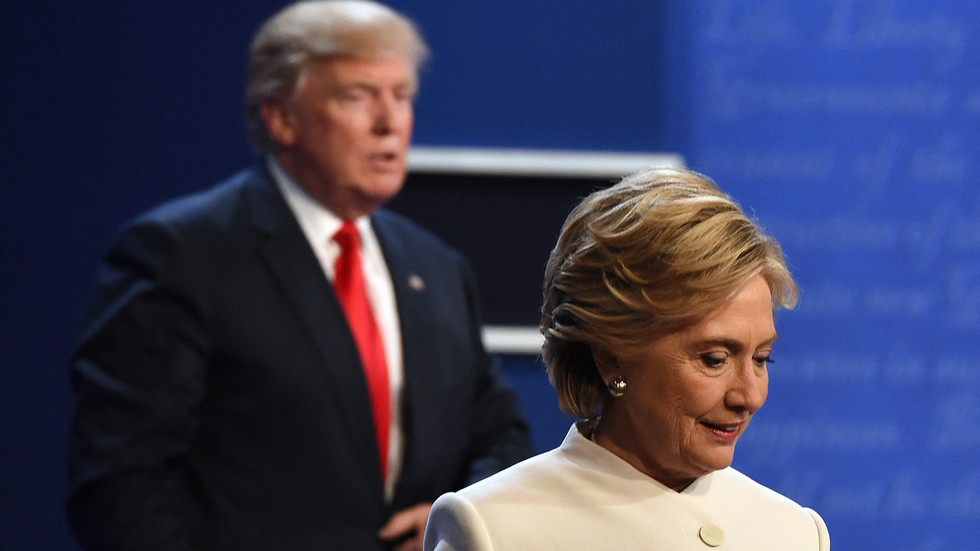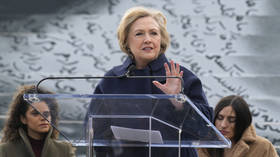
The former US president had accused the ex-Democratic nominee of slandering his campaign by alleging it colluded with Russia

Democratic nominee Hillary Clinton and Republican nominee Donald Trump walk off the stage after the final presidential debate on October 19, 2016. © Robyn Beck / AFP
A US federal court has fined former President Donald Trump and his lawyers nearly $1 million for a “frivolous” lawsuit they had filed against ex-presidential candidate Hillary Clinton. Trump had claimed that Clinton engaged in a smear campaign to undermine his chances in the 2016 election by alleging he collaborated with Moscow.
In a ruling on Thursday, Judge John Middlebrooks in the US District Court for the Southern District of Florida sanctioned Trump and his attorney Alina Habba, ordering them to cover legal fees and costs to the tune of $938,000 incurred by defendants in the case.
They included Clinton, her campaign chief John Podesta, former chairwoman of the Democratic National Committee (DNC) Rep. Debbie Wasserman Schultz, and Orbis Business Intelligence, a company co-founded by Christopher Steele, an ex-British agent who compiled the notorious “Trump-Russia dossier.”
“We are confronted with a lawsuit that should never have been filed, which was completely frivolous, both factually and legally, and which was brought in bad faith for an improper purpose,” Middlebrooks wrote in the court order.

Read more
He also called Trump a “mastermind of strategic abuse of the judicial process” and “a prolific and sophisticated litigant who is repeatedly using the courts to seek revenge on political adversaries.”
In March, the ex-president filed the lawsuit accusing Clinton, the DNC, and a number of other people of having entered a malicious conspiracy to accuse his campaign of colluding with Russia in an effort to harm his electoral chances. At the time, he sought compensatory and punitive damages, arguing that the alleged smear campaign had cost him more than $24 million.
In September, Middlebrooks dismissed the action as a “political manifesto,” pointing to its “glaring problems” from the legal point of view.
In 2016, the US accused Russia of meddling in the presidential election to harm Democratic nominee Hillary Clinton and boost the Republican candidacy of Donald Trump. Moscow denied the allegation. While US investigators led by a special counsel looked into potential collusion with Russia by Trump and his campaign, they failed to find evidence to bring any conspiracy or coordination charges.




